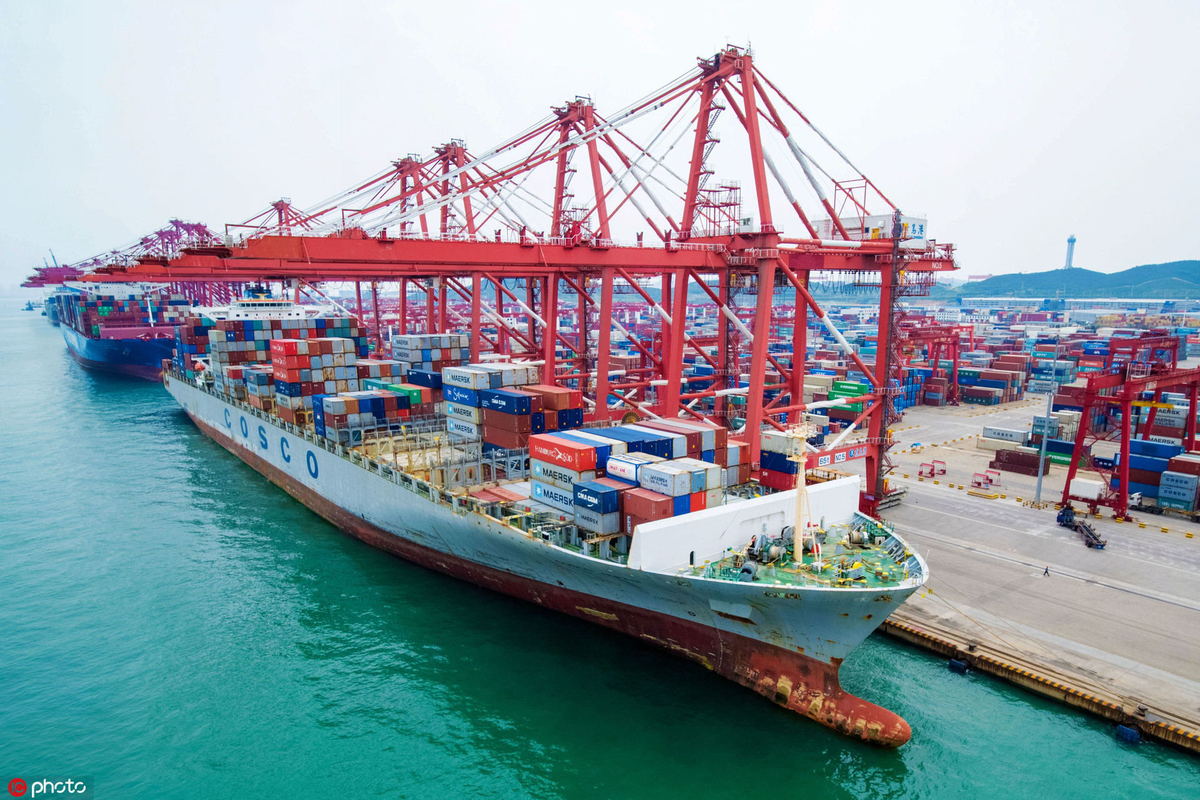US trade groups oppose escalation of tariff spat


US trade groups have joined in a chorus of opposition to the latest escalation of tariffs Washington threatened for all the Chinese imports, saying that "enough is enough" as intensified tensions roil stock markets, ruin businesses and rid farmers of their most important export markets.
On Friday, US President Donald Trump announced that he would hike duties on $250 billion worth of Chinese goods from current 25 percent to 30 percent beginning on Oct 1, and the remaining imports of $300 billion from the planned 10 percent to 15 percent on Sept 1.
The move followed Beijing's plan on Thursday to raise tariffs on $75 billion worth of US goods in retaliation to the US side's planned taxing on an additional $300 billion worth of Chinese imports, which was announced earlier this month.
China's Ministry of Commerce said on Saturday the country is "firmly opposed" to the US's "unilateral and bullying acts of trade protectionism and extreme pressure", and urging it to immediately stop its "erroneous practices".
"Enough is enough – as evidenced by today's 623-point drop in the Dow, global markets are reeling on fears of a global recession. And today's announcement only inflicts more pain on American businesses, workers and families," said Gary Shapiro, president and CEO of Consumer Technology Association based in Arlington, Virginia.
"These escalating tariffs are the worst economic mistake since the Smoot-Hawley Tariff Act of 1930 – a decision that catapulted our country into the Great Depression. Instead of making America great again, the president is using tariffs to make a great economic mistake – again," Shapiro said in a statement.
"How much longer will our families, companies and economy be forced to bear the financial burden of this misguided trade policy?" he asked.
Rick Helfenbein, president and CEO of the American Apparel & Footwear Association, also lamented that what the US businesses now get is "a 1930s trade strategy" that will be a disaster for consumers, businesses, and the economy.
"Meanwhile, the President has said he wants American businesses to stop working in China, yet he doesn't seem to understand that moving a supply chain is incredibly complicated and expensive," Helfenbein said, referring to Trump's tweet on Friday in which he "hereby ordered" US companies to seek alternatives to doing business in China.
"It takes years to build relationships that meet compliance standards and deliver quality products, yet we have been given weeks and in this case days," Helfenbein said.
David French, senior vice-president for government relations of the National Retail Federation, also said, "It's impossible for businesses to plan for the future in this type of environment. The administration's approach clearly isn't working, and the answer isn't more taxes on American businesses and consumers. Where does this end?"
Speaking for the US business community, Myron Brilliant, executive vice-president and head of international affairs of US Chamber of Commerce, said that despite some concerns, the 40-year old trade relationship between US and China has been for the most part "productive, constructive, and mutually beneficial".
"While we share the President's frustration, we believe that continued, constructive engagement is the right way forward. Time is of the essence. We do not want to see a further deterioration of US-China relations," Brilliant said, adding that the chamber urged the administration and the government of China to return to the negotiating table to reach a deal.
Davie Stephens, president of the American Soybean Association, said he hoped both parties would step up, stop tariffs, and find resolution that does not target soy growers trapped in the middle.
Chinese companies halted purchases of US farm produce early this month when the US planned to impose additional 10-percent tariffs on $300 billion worth of Chinese imports, which seriously violated the consensus reached by the two heads of state in Osaka, Japan at the end of July.
Stephens said the protracted standstill in soybean sales means worsening circumstances for soy growers who still have unsold product from this past season and new crops in the ground this season – "with prospects narrowing even more now for sales with China, a market soy growers have valued, nurtured, and respected for many years".
Farmers for Free Trade, a bipartisan coalition supported by America's leading agriculture commodity associations, said in a statement that the rapid evaporation of the Chinese market has for the first time in over four decades "brought us to the brink of losing our agriculture trade surplus with the rest of the world".
"While American farmers are on the sidelines, farmers in Brazil, Canada and Russia are reaping the benefits of the administration's trade policy decisions," it said. "Farmers want a win, not a war."




































